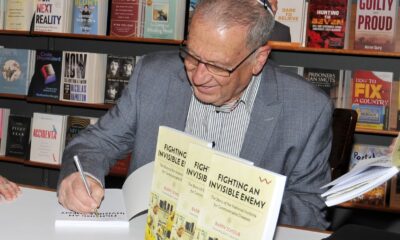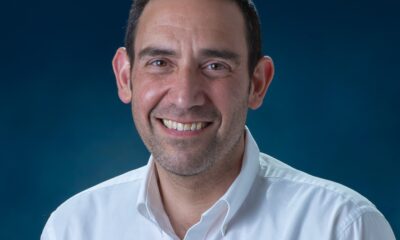
Featured Item
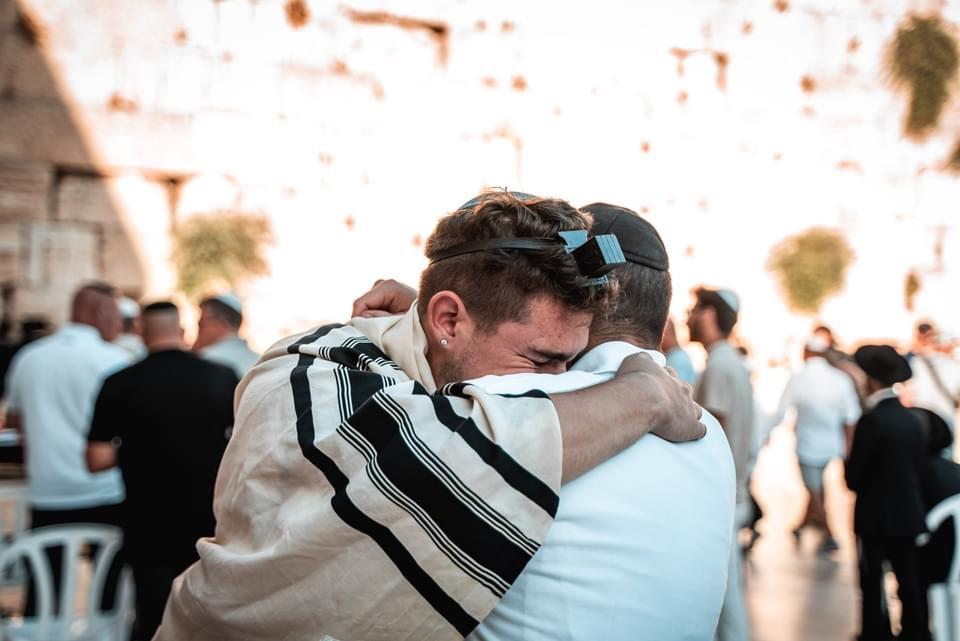
“COVID-19 never left me” – survivors share hope and heartbreak
Three years ago, the world shut down in an effort to combat an unknown enemy: the newly emerging COVID-19 pandemic. Though this terrifying time has faded into the past, for some, the pandemic never ended or was just the beginning of a waking nightmare. Many of these “walking wounded” are still picking up the pieces, yet they show resilience as they emerge from the darkness.
“What people don’t know is that almost dying from COVID-19 is one thing, but then there are the after-effects,” says Capetonian Ryan Lipman (22), who fought for his life for three weeks in hospital at the age of 21, including 11 days in an intensive care unit (ICU) at the height of the third wave in July 2021.
“You deal with a lot of PTSD [post-traumatic stress disorder],” he says. “Some of the things I saw and heard [in ICU], I still hear them and picture them today. I was scared to walk out the house. I couldn’t look at pictures of people in masks or on ventilators. You get some very weird fears. I would stay up all night, or cry at random points, not believing what I had gone through. It was so overwhelming.”
He says that after he survived, he felt like he had to “grab life with both hands”, which led him to make some questionable choices. “When you’re scared for your life, you’ll land up doing anything. I went through a bit of a rebellious stage. I also wanted the fun and freedom that a person in their 20s would usually enjoy, that was taken away from me.”
He also turned away from Judaism, “because I didn’t believe someone I pray to would put me in that situation. But after time in a clinic and therapy, a rabbi I’m extremely close to, Rabbi Sean Cannon, took me under his wing. I met him every week, and he encouraged me to come to Israel on the Ohrsom programme. The moment I put on tefillin for the first time since I had COVID-19, at the Kotel with him by my side, was extremely emotional.”
Lipman, a musician, has gone on to join the Herzlia JET (Jewish Experiential Team) department, playing music for its events, including Kabbalat Shabbat, and he volunteers in other communal capacities including at Bnei Akiva. “I’ve come to realise I’ll never understand why it [getting so ill] happened, and I’m okay with that. COVID-19 changed my life for the better.”
He still has lung damage, but is able to live a mostly normal life. “You develop an appreciation for the things we take for granted. When you can’t walk or breathe on your own, you wonder if you will ever be able to do those things again. I’m grateful to be alive.”
Some never recovered from the virus. “It’s been a great challenge living with long COVID-19,” says Belinda Silbert, also in Cape Town. She and her children became extremely ill in the first wave, and her life has never been the same. “I’ll never be one of those who can put COVID-19 in the past and pretend it never happened. I live with the reminder every day of my life,” she says.
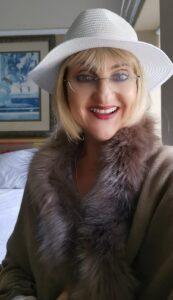
“As an opera singer, I have even had to adapt my style of singing because of how COVID-19 affected my lungs and heart, but even in that I have found meaning” she says. “And even with this debilitating condition, I managed to complete my rabbinical studies and was elected to the Cape South African Jewish Board of Deputies. I’m determined that this chronic illness won’t bring my life to a halt.”
The ramifications of COVID-19 are never far off. “About four months ago, I started suffering from significant heart problems,” says Silbert. “They started early in my COVID-19 infection, but have become more apparent. It has resulted in me being admitted to ICU. But COVID-19 gave me the final impetus not to let my dreams pass me by. I have found renewed meaning in serving my community.”
Debbie Cohen couldn’t attend her son, Jeff’s, wedding in Israel in May 2020 because of COVID-19 restrictions. Seven months later, she and her husband, Ian, decided to take a very cautious holiday in Plettenberg Bay to be with their grandchildren. It was the height of the second wave, and they kept an extreme social distance.
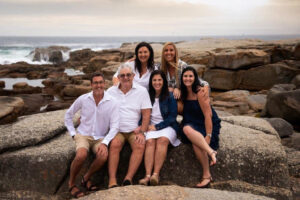
But somewhere along the way, they contracted COVID-19. Ian drove them home from Plett, but then began to feel unwell. Both he and Debbie tested positive. Their daughter, Robyn, a doctor visiting from London, treated her father until he had to be admitted to hospital on 5 January 2021.
There he was soon ventilated but contracted an infection from a “superbug” in the hospital. “By 18 January 2021, he was gone,” says Debbie. Their son, Jeff, whose wedding they had been unable to attend, couldn’t come to South Africa for his own father’s funeral because of COVID-19 restrictions.
However, the family has carried forward Ian’s love of life and family, and four grandchildren have been born since his passing. All of them are named after him in some way. “It’s like he made place for them,” says Debbie.
The pandemic took away so many significant family milestones for the Cohens, from a wedding to a funeral. In fact, Debbie and Ian had been on their way to Israel to celebrate Jeff’s engagement when lockdown hit and they had to turn back. Yet just more than a year later, in May 2021, after Ian had passed away and Jeff’s baby girl was due to be born, community members and Israeli officials moved heaven and earth for Debbie to be there. “I was one of the few grandparents allowed into Israel at the time,” she remembers.
“Ian was hale and hearty before he died, although he was pre-diabetic,” she says. “In the end, being cautious wasn’t enough. But he got to spend time with his grandchildren that holiday.” She wasn’t allowed to take Ian to hospital because she had COVID-19, so her daughters took him, but she later saw him in ICU, holding the phone to his ear so he could hear messages from his family.
“At the time, we never knew who would be hit, who would succumb,” she says. “After he died, I heard from so many people who I didn’t even know he had helped. He was so humble and so loved.” She continues to live life to the fullest, as Ian would have wanted. “It’s hard, but you have to get up and push yourself,” she says.
COVID-19 also changed lives for doctors on the frontline. “Never did I believe in my lifetime that I would have to go to war,” says pulmonologist Dr Anton Meyberg. “How wrong I was. Initially, we thought it was everyone else’s problem and then – boom – it erupted in South Africa. Like a wildfire in the driest of bushes, it just decimated and destroyed. It was a never ending story until, thank G-d, the vaccines arrived.
“Now it’s there but under the radar, just another respiratory virus that we have the mechanism to deal with. Prior to that, there was no hope.
“The pandemic taught us a different type of balance,” he says. “I learnt how to juggle and rearrange my life in such a way that I’m able to have equilibrium in which it’s not all work, but there’s an intertwining of family, friends, and other important things.
“Are we prepared for potential future pandemics?” asks Meyberg. “I would like to think so, but we can be sure only if we’re thrown back in to the fire. This time, hopefully, we’ll have our rescue gear waiting on the sidelines from all the lessons we learnt. Most importantly, hug your family and friends. Don’t take anyone or anything for granted.”





